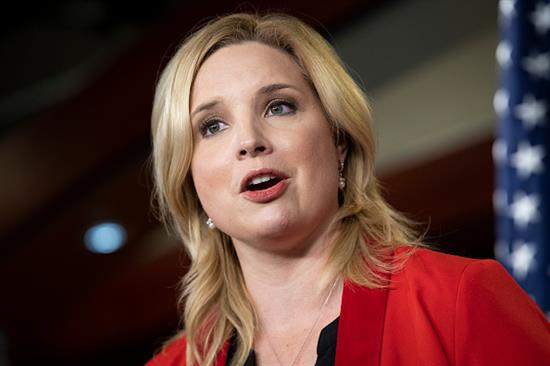Today, House Republicans will begin debate on the Israel Security Supplemental Appropriations Act a $14.3 billion emergency supplemental appropriations package that provides our great ally Israel with the resources needed to defend itself against the Iranian-backed Hamas terrorists.
The Israel Security Supplemental Appropriations Act is fully offset by recisions from Joe Biden's Inflation "Expansion" Act of 2022, specifically the enhanced funding for the IRS.
MAKE NO MISTAKE: House Republicans stand unequivocally like a rock with our great ally Israel.
ISRAEL SECURITY SUPPLEMENTAL APPROPRIATIONS ACT (Courtesy of Speaker Mike Johnson’s Office):
-
Ensures American military readiness by providing $4.4 billion to replenish domestic defense stockpiles.
-
Bolsters Israel’s defensive capabilities and stockpiles of munitions critical to its continued efforts, specifically by providing:
-
$4 billion to replenish Iron Dome and David’s Sling missile defense systems.
-
$3.5 billion in Foreign Military Financing for the procurement of advanced weapons systems and defense articles and services.
-
$1.2 billion for the continued development of the Iron Beam system to counter short-range threats.
-
$1 billion to support artillery and munitions production.
-
Supports US personnel and citizens by providing:
-
Requires that the Secretary of Defense and Secretary of State provide written reports to Congress detailing US security assistance provided to Israel to ensure accountability.
-
The funding is offset by recisions from the Inflation Reduction Act of 2022, specifically Section 10301, which appropriated enhanced funding for the Internal Revenue Service (IRS).
Click HERE to review the full text of the Israel Security Supplemental Appropriations Act.
Click HERE for a detailed funding summary of the Israel Security Supplemental Appropriations Act, courtesy of House Appropriations Committee Republicans.
FY2024 INTERIOR, ENVIRONMENT, AND RELATED AGENCIES APPROPRIATIONS BILL
Today, we will also start debate on the Fiscal Year 2024 Interior, Environment, and Related Agencies Appropriations Bill, which cuts bureaucratic red tape, prioritizes funding for public safety and critical operations and maintenance programs, and protects hunting, fishing, and recreational access.
This bill would also require oil and gas lease sales by the Biden Administration, unleashing American energy dominance and helping to drive down energy prices for hardworking Americans.
FACTS ABOUT THE FY24 INTERIOR, ENVIRONMENT, AND RELATED AGENCIES APPROPRIATIONS BILL (Courtesy of House Appropriations Republicans):
-
Reins in wasteful Washington spending and bureaucracy by:
-
Rightsizing agency funding levels;
-
Expanding access to critical minerals;
-
Requiring oil and gas lease sales;
-
Limiting job killing regulations by the EPA, such as repealing the recent Waters of the United States (WOTUS) regulation;
-
Limiting abuse of the Endangered Species Act regarding species such as the sage- grouse, the gray wolf, and the lesser-prairie chicken; and
-
Reducing funds for nearly every other appropriation in the bill, including eliminating funding for the Presidio and reducing the EPA by 39%.
-
Reduces funding for nearly every account to below FY23 enacted levels.
-
Cuts funding for programs that are unauthorized for FY24.
-
Rescinds $7.8 billion from the Greenhouse Gas Reduction Fund created in the IRA.
-
Rescinds $1.4 billion for Environmental and Climate Justice funding provided in the IRA.
-
Rescinds $200 million designated by the Department of the Interior for the Presidio Trust.
-
Rescinds $55 million for the Council on Environmental Quality.
-
Prioritizes funding for public safety and critical operations and maintenance programs by:
-
Providing a $1.604 billion increase in discretionary funding for the Wildland Fire Management accounts at the Department of the Interior and the Forest Service
-
Providing funds for the Bureau of Indian Affairs, the Bureau of Indian Education, and the Indian Health Service at or above the comparable FY23 enacted level; and fully funding PILT estimated to be $515 million.
-
Reins in the EPA
-
Repeals the Biden Administration’s Waters of the United States (WOTUS) regulation.
-
Prohibits EPA from allowing California to require that new small off-road engines, such as lawncare equipment, be zero-emission.
-
Prohibits funding for EPA regulatory overreach regarding ozone emissions and steam electric power plants.
-
Prohibits EPA approvals of pesticide labeling that is inconsistent with a human health assessment or carcinogenicity classification pursuant to the Federal Insecticide, Fungicide, and Rodenticide Act.
-
Prohibits EPA from imposing mandatory reporting of greenhouse gas emissions from manure management systems.
-
Prohibits EPA from implementing permitting requirements for livestock emissions under the Clean Air Act.
-
Prohibits agencies from using the Social Cost of Carbon in cost-benefit analyses.
-
Limits Abuse of the Endangered Species Act
-
Strengthens the limitation on listing sage grouse to include bi-state population.
-
Prohibits the introduction of bison in the Charles M. Russell Wildlife Refuge.
-
Prohibits the listing of the lesser prairie-chicken.
-
Requires the Department of the Interior to reissue the 2020 rule delisting the gray wolf.
-
Prohibits the up-listing of the northern long-eared bat.
-
Prohibits introduction of the grizzly bear in the North Cascades Ecosystem.
-
Provides Protections for Oil and Gas
-
Requires oil and gas lease sales in the Central Gulf of Mexico Planning Area and the Western Gulf of Mexico Planning Area and in the Alaska region.
-
Requires the Secretary of the Interior to conduct quarterly onshore oil and gas lease sales.
-
Supports Values
-
Prohibits funding for eco-grief counseling.
-
Prohibits the use of funds to promote or advance Critical Race Theory (CRT).
-
Prohibits implementation of the Biden Administration’s Executive Orders on Diversity, Equity, and Inclusion (DEI).
-
Improves forest management by addressing the harmful impacts of the Cottonwood decision.
-
Prohibits funds for the Wuhan Institute of Virology.
-
Prohibits funds for certain objectionable Smithsonian programs.
-
Ensures only appropriate flags are flown over agency facilities.
-
The FY 2024 Interior, Environment, and Related Agencies Appropriations Bill also:
-
Provides $14.3 billion for the Department of the Interior, which is $677 million below the FY23 enacted level and $3.4 billion below the President’s Budget Request.
-
Provides $6.173 billion to the Environmental Protection Agency, which is $3.96 billion (39%) below the FY23 enacted level and $5.91 billion below the President’s Budget Request.
-
Provides $8.023 billion for the U.S. Forest Service which is an increase of $948.75 million above the FY23 enacted level and $1.708 billion below the President’s Budget Request.
-
Provides $7.078 billion for FY24, including the prior year advance, for the Indian Health Service, which is $149.4 million above the comparable FY23 level and $2.2 billion below the President’s Budget Request. The bill provides $5.878 billion in FY25 advanced appropriations and rejects the Administration’s proposal to make contract support costs and Tribal leases mandatory spending.
-
Provides $76 million for the Agency for Toxic Substances and Disease Registry, which is $9 million (11%) below the FY23 enacted level and $10 million below the President’s Budget Request.
-
Provides $3.75 million for the Council on Environmental Quality, which is $926,000 (20%) below the FY23 enacted level and $1.075 million below the President’s Budget Request.
-
Provides $30 million for the Kennedy Center, which is $15.38 million (34%) below the FY23 enacted level and $18.03 million below the President’s Budget Request.
-
Provides $178 million for the National Gallery of Art, which is $31.2 million (15%) below the FY23 enacted level and $43 million below the President’s Budget Request.
-
Provides $186.3 million for the National Endowment for the Arts, which is $20.7 million (10%) below the FY23 enacted level and $24.7 million below the President’s Budget Request.
-
Provides $186.3 million for the National Endowment for the Humanities, which is $20.7 million (10%) below the FY23 enacted level and $24.7 million below the President’s Budget Request.
-
Provides $959.7 million for the Smithsonian Institution, which is $184.79 million (16%) below the FY23 enacted level and $281.3 below the President’s Budget Request.
-
Provides $67 million for the U.S. Holocaust Memorial Museum, which is $1.77 million above the FY23 enacted level and equal to the President’s Budget Request.
-
Provides $12 million for the Woodrow Wilson International Center for Scholars, which is $3 million (20%) below the FY23 enacted level and $4.1 million below the President’s Budget Request.
-
Includes $880 million in Community Project Funding for 767 water infrastructure projects requested by 276 Members.


